Using cutting edge technology to inspire the next generation of marine scientists
Interview with
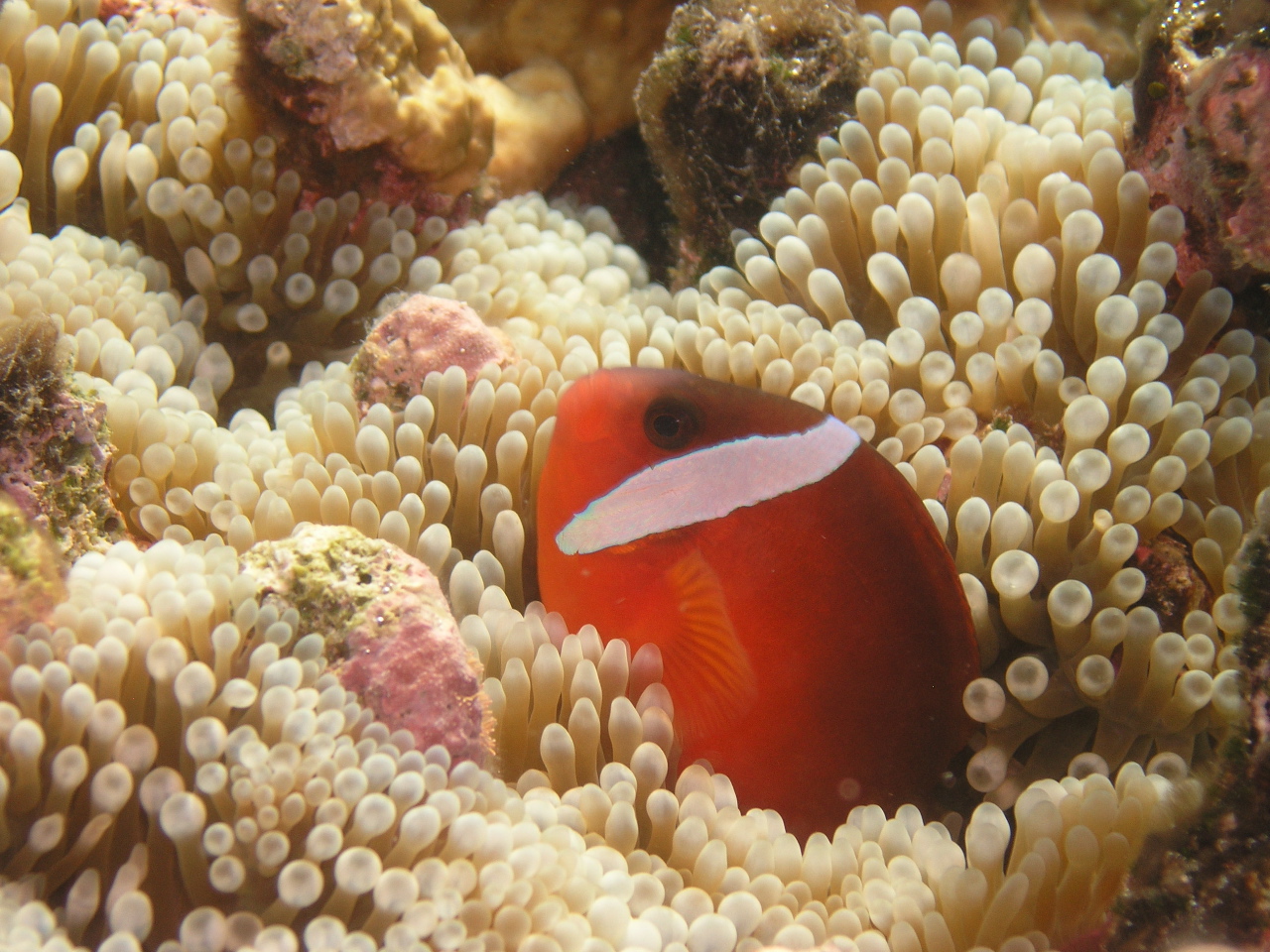 Joshua - So I was working in Fiji where we were describing new species and recognising the high levels of endemism in Fiji. And whenever we told people in the villages about that they became really excited about it, and I though it would be great if we could work more systematically and not just do it piecemeal from village to village, but rather get it engrained into the education system.
Joshua - So I was working in Fiji where we were describing new species and recognising the high levels of endemism in Fiji. And whenever we told people in the villages about that they became really excited about it, and I though it would be great if we could work more systematically and not just do it piecemeal from village to village, but rather get it engrained into the education system.
And so, I wanted to work with high schoolers in Fiji to teach them from the very beginning, you know 14-15 years old, about how special their marine resources are and how they're the stewards of those endemic species, that they're the people who are responsible for the health of the entire world's population of these species.
And that's a pretty big responsibility but it's also a big source of pride. We have the phrase Na ika kai viti, the 'Fijian Fish'.
Helen - As well as working with students in Fiji, Dr Drew also wanted to connect with people closer to home.
Joshua - It was distressing to me that the teens in Chicago aren't often exposed to wild and natural places and that they didn't have necessarily a sense of how beautiful and vibrant the marine world is, and that got me thinking about how do we best link up kids in Chicago with kids in Fiji, and it kind of hit me that they aren't different, that really I was trying to do the same thing just in two unique environments. But the methods I would use to get the youths engaged are pretty much the same and there's no reason why we couldn't do it as a unified program.
And I thought wouldn't it be cool if we could come up with this virtual classroom where we do away with the geographic distances between the students and we just let them communicate, and we let them talk about what matters to them simultaneously from opposite ends of the earth.
Helen - So, that's what Dr Drew did. Working with an NGO in Fiji and education specialists at the Field museum, he connected kids in Fiji and Chicago.
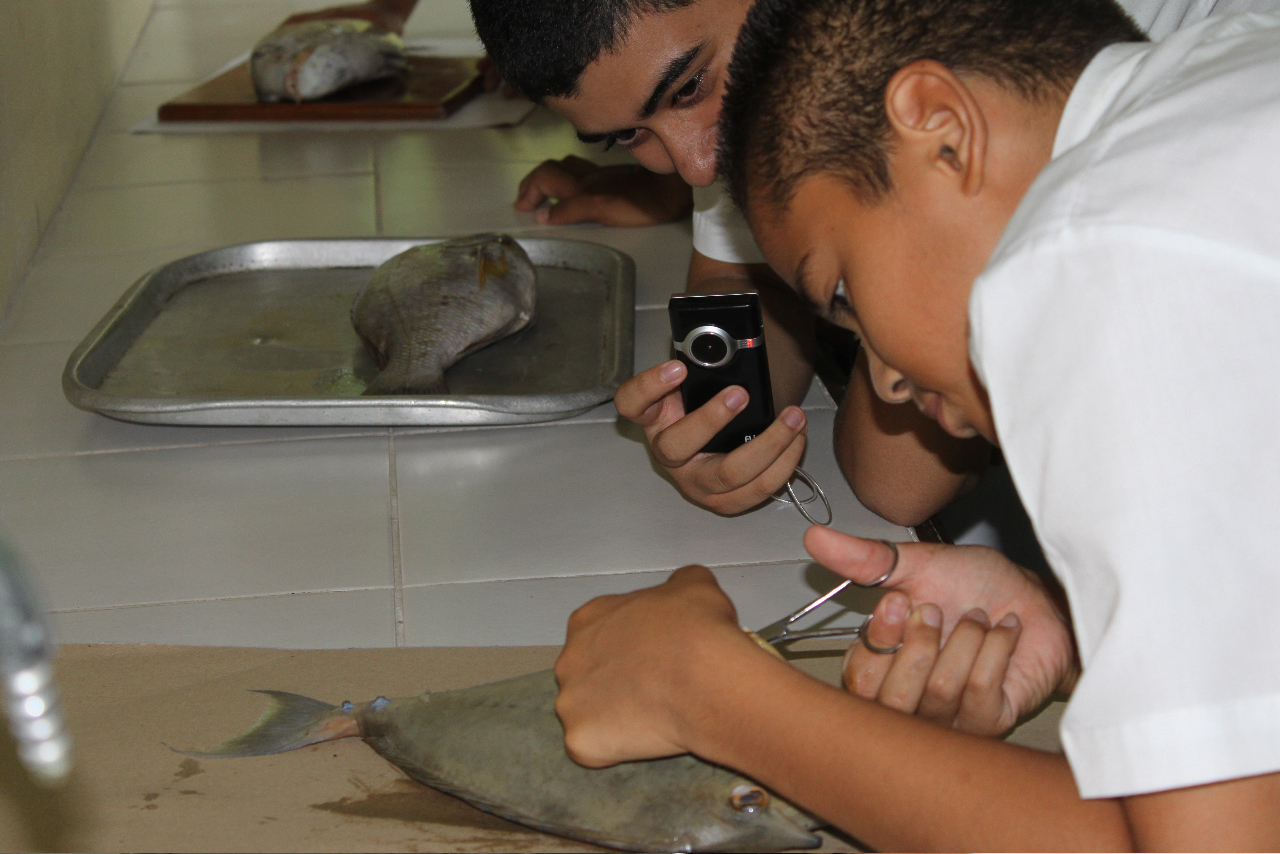 Joshua - The real hallmark was getting the students learning from each other. So for instance we had a project where each student group would study one individual. We had one group in Chicago and one group in Fiji both work on white tipped reef sharks. And they researched it and we have them do a little bit of a documentary or a play about white tipped reef sharks, and they would video them and would post them to this custom social network site that we made.
Joshua - The real hallmark was getting the students learning from each other. So for instance we had a project where each student group would study one individual. We had one group in Chicago and one group in Fiji both work on white tipped reef sharks. And they researched it and we have them do a little bit of a documentary or a play about white tipped reef sharks, and they would video them and would post them to this custom social network site that we made.
And then both groups would review each other and say "oh that was great, you learned how these are benthic sharks so they live on the bottom and use their heads to wiggle into crevice and get parrotfish, but maybe you didn't talk about how they hunt in packs."
It was peer to peer learning and the students were critiquing and coming up with a stronger project. And that peer to peer is a much more effective way for students to get the information reinforced that just me standing up on high on a podium lecturing at them.
Helen - And at the end of the Semester, Dr Drew got the students in Fiji and Chicago to work on a project that ended up having some real-world conservation outputs.
Joshua - The final project was really awesome I love it. What we did was, I flew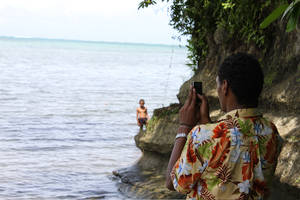 out to Fiji and we worked with the students there for a couple of weeks, and we worked with a village called Navakavu which is 10km outside the capital city of Fiji, Suva.
out to Fiji and we worked with the students there for a couple of weeks, and we worked with a village called Navakavu which is 10km outside the capital city of Fiji, Suva.
And the villagers of Navakavu are mostly fishermen and they had done a really good job of keeping their reefs clean. They had fishery wardens, they had tambu areas, these no-take areas set up, but yet their fisheries were still declining. So we went there are we wanted to figure out why this was.
So the Fijian students and I went in and we did a sevu sevu, which is a traditional welcoming ceremony where we were invited into the village and we talked to the chief and the village elders and we talked a little about why we were there and what we wanted to do.
And then, the Fijian students interviewed the fishermen in Fijian about why they thought their resources were declining, what the threats to their reefs were. The students videotaped these too and were able to translate them so the Fijian students made these mini documentaries about the village of Navakavu.
Helen - The message that came through loud and clear from the villagers in Navakavu village was that saw their reefs getting impacted by garbage washing in from the capital of Fiji, Suva.
So the Fijian students shared these mini documentaries with their friends in Chicago and together they brainstormed ideas of what to do about this problem of plastic waste.
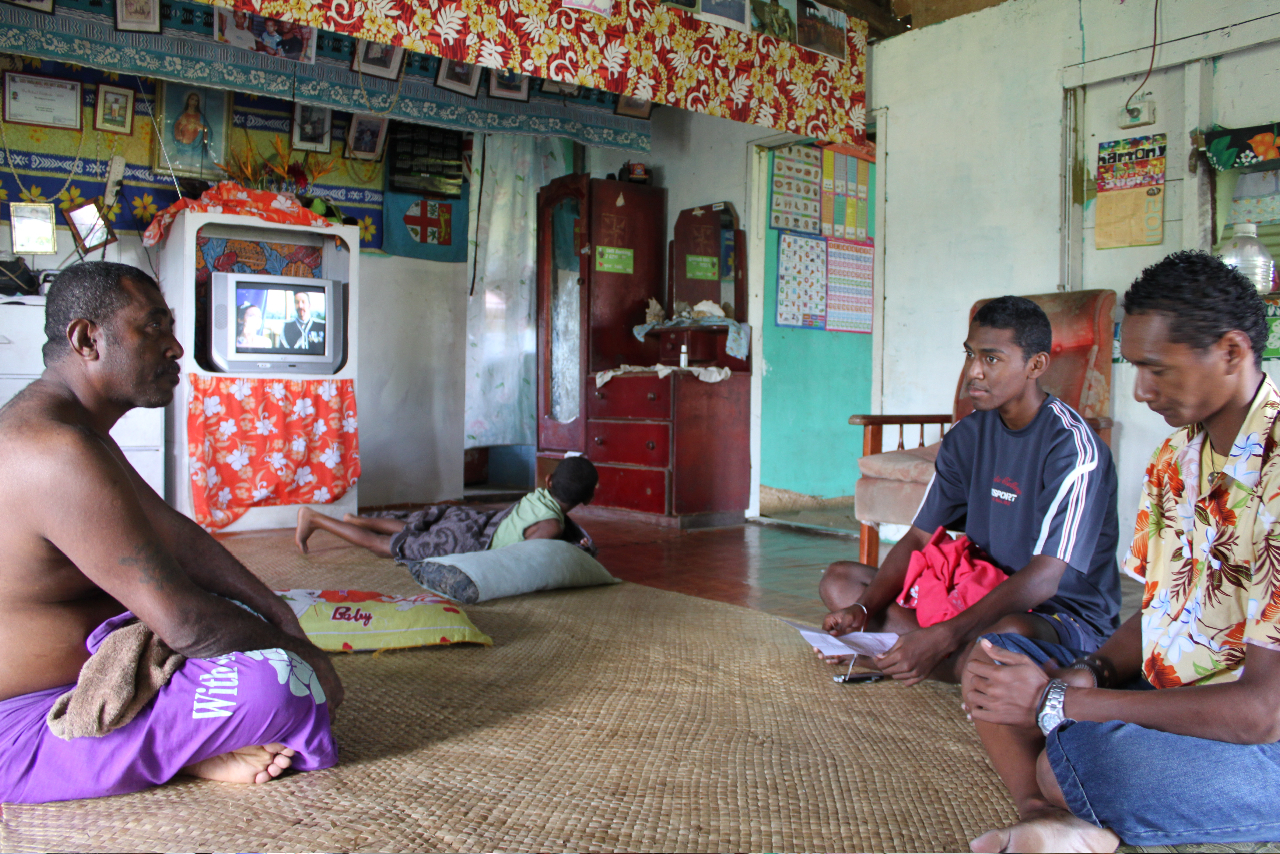 Joshua - What we ended up doing was writing two letters to the editor for the Fijian newspapers, the Fiji Times. And also coming up with a PSA, a Public Service Announcement, so a short video letting people know that polluting in Suva impacts reefs outside Suva. And it was really great because the students in Chicago came up with these ideas, they wrote them and as a class in Chicago we went down to Lake Michigan and we acted out this video where she showed that when you throw a plastic bag into the water it can end up in your food supply. It's a really funny video.
Joshua - What we ended up doing was writing two letters to the editor for the Fijian newspapers, the Fiji Times. And also coming up with a PSA, a Public Service Announcement, so a short video letting people know that polluting in Suva impacts reefs outside Suva. And it was really great because the students in Chicago came up with these ideas, they wrote them and as a class in Chicago we went down to Lake Michigan and we acted out this video where she showed that when you throw a plastic bag into the water it can end up in your food supply. It's a really funny video.
The thing that I love best about that is that as educators we stepped back, and we let the students come up with the ideas, and we let the students create and edit and shoot and put together both the videos and the letters. We helped make sure that the factual content was there, but this was really the students in the drivers seat. This was the students taking tenure over their own conservation activities, and that as a conservation biologist was really heartening to see.
Helen - Bringing together students in Fiji and Chicago, Dr Drew has been helping to spread the word about marine biology and ocean conservation in two very different parts of the world.
Joshua - The school in Fiji is a private school, a prep school, and I was really glad to work with the next generation of Fijian leaders. These students from Fiji are very smart. They're going to be the people who in 10-15 years are running the fisheries management council, the people who are going to be running the no-take marine protected area council.
I wanted to make sure that these people who are going to be in positions to help control and improve Fiji's environment at least got some exposure to why it's important to do marine conservation. And I wanted to at least have them start thinking that Fiji has really beautiful reefs that are still in relatively good shape and they have the power in their hands to make sure in 10-15 years when they're running the country that they can keep Fiji being one of these beautiful places in the world.
And on the Chicago end I wanted to show the students that if you have an interest in science that there's a lot of really cool careers you can do with it. Obviously I think being a marine biologist is the best job in the world and I'm totally biased in that aspect, but one of the great spinoffs of that was that two of the students who participated in the project are no interning here at the Field Museum over the summer where we're working on marine biology and marine conservation issues, and that's a really fantastic opportunity for them & myself.
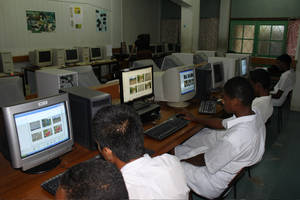 Helen - Those two lucky students, Amber & Darcae spent their summer working with Dr Drew at the Field Museum, helping him to study fish.
Helen - Those two lucky students, Amber & Darcae spent their summer working with Dr Drew at the Field Museum, helping him to study fish.
Amber - We do so many different things and it's really exciting. We do DNA analysis, we do morphological processing. We measure the fish, we measure the different parts of the fish, the dorsal and pelvic spines. I learn and lot and I absorb a lot so I can teach people, like I reach people at home, what I learned, and they find it exciting.
Darcae - I'm enjoying everything. There's not one part of my day that I don't like and everyday I go home and tell everybody what I did today and annoy them at how excited I was at work and they were just sitting at home.
Joshua - One of the things that's been really great for me is that the students aren't just doing grunt labour. They're actually doing the calculations and the statistical analyses that we need to help write these papers so they're not just getting me coffee they're doing honest to good work.
I'm just really impressed to see how the students who started out not really 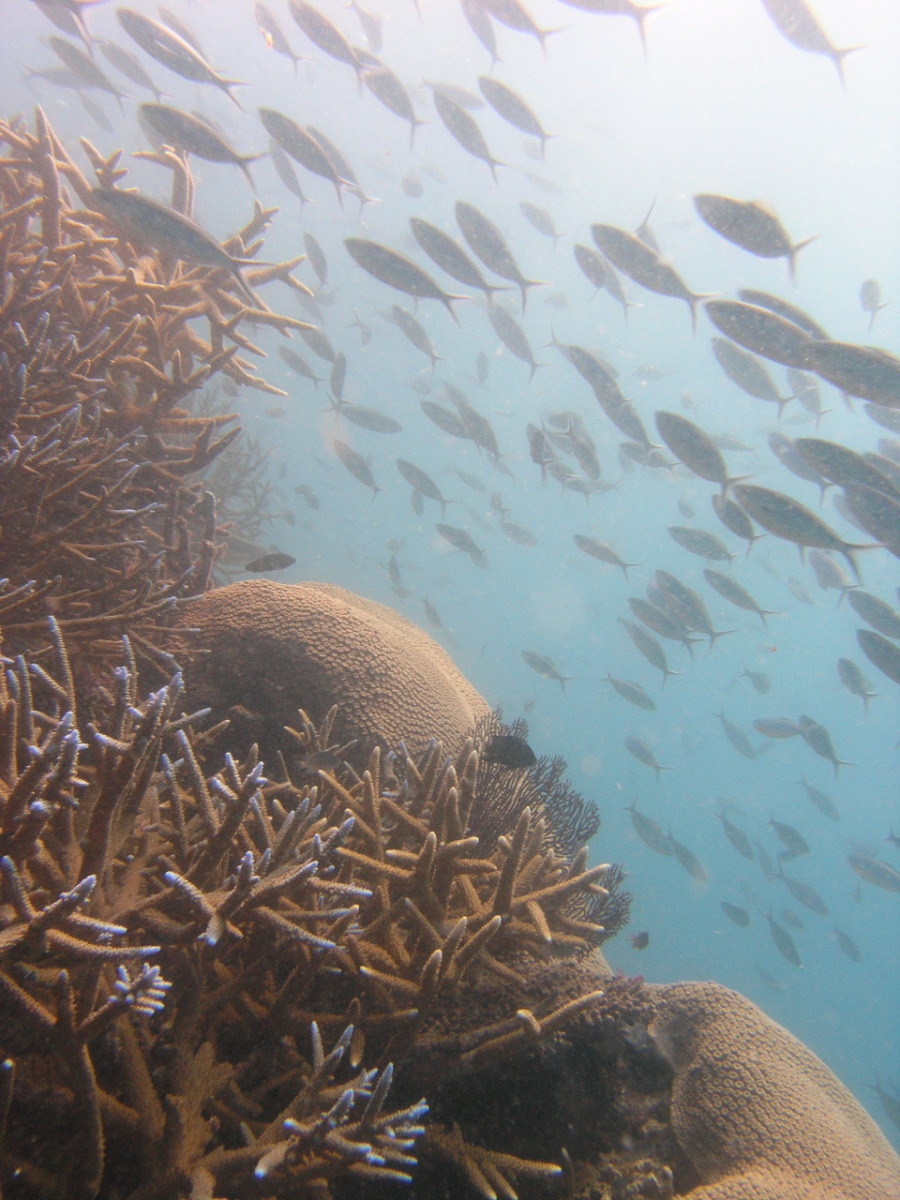 knowing a whole lot about different species or different marine interactions, how in a relatively short period of time, transitioned from being really marine novices to being experts about it.
knowing a whole lot about different species or different marine interactions, how in a relatively short period of time, transitioned from being really marine novices to being experts about it.
I'm also really proud that they didn't just sit there with that information but they not only did the conservation act but that they're really telling everybody in their community about it and really starting to raise the awareness of it.
That was far more than I could have ever hoped for.
Find out more:
Joshua Drew's website
Read Dr Drew, Amber & Darcae's paper:
Drew et al (2012) Biodiversity inventories and conservation of the marine fishes of Bootless Bay, Papua New. BMC Ecology.
Fiji reef pollution Public Service Announcement video
Field Museum of Natural History, Chicago
Voise Academy High School, Chicago
Wildlife Conservation Society, Fiji










Comments
Add a comment